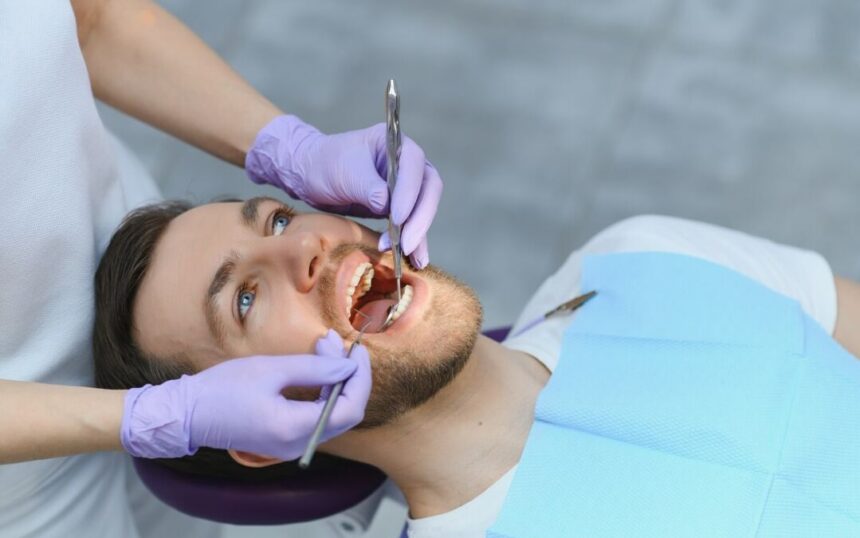Many people believe that visiting the dentist is only necessary when they feel pain or see visible problems. However, regular dental checkups are vital for maintaining not just your oral health but your overall well-being. In this article, we’ll explain why routine visits to the dentist matter, what to expect during a checkup, and how often you should go.
Why Are Regular Dental Checkups Necessary?
Regular dental checkups help prevent, diagnose, and treat oral issues before they become serious. Early detection of cavities, gum disease, and oral cancer can save your teeth, time, money, and discomfort.
Fact: The American Dental Association recommends visiting a dentist at least twice a year, even if you don’t have any symptoms.
What Happens During a Routine Dental Checkup?
A typical dental checkup involves a thorough examination of your mouth by a dental professional. Here’s what usually happens:
H3: 1. Dental Cleaning (Prophylaxis)
- Removal of plaque and tartar buildup
- Polishing of teeth
- Flossing and rinsing
H3: 2. Oral Examination
- Checking for cavities, gum disease, loose teeth, and bite issues
- Examination of tongue, cheeks, and throat for signs of infection or abnormalities
H3: 3. X-Rays (If Required)
- Detect hidden problems like impacted teeth, jawbone loss, or deep decay
H3: 4. Consultation and Advice
- Personalized recommendations about brushing, flossing, and diet
- Advice on orthodontic or cosmetic procedures if needed
Key Benefits of Regular Dental Checkups
H3: 1. Early Detection of Dental Issues
Visiting your dentist regularly ensures early spotting of cavities, gum problems, and infections, allowing for less invasive and more affordable treatments.
H3: 2. Prevention of Gum Disease
Gingivitis and periodontitis are common yet preventable. Routine cleanings and early intervention keep your gums healthy and strong.
H3: 3. Oral Cancer Screening
Dentists check for early signs of oral cancer — a life-threatening disease — during routine exams. Early detection greatly increases the chance of successful treatment.
H3: 4. Keeps Bad Breath Away
Persistent bad breath (halitosis) may be a sign of a deeper issue. Regular cleanings eliminate bacteria buildup, reducing odor.
H3: 5. Protects Overall Health
Oral health is closely linked to general health. Conditions like diabetes, heart disease, and respiratory issues are often aggravated by poor dental hygiene.
Note: Infections in the mouth can spread to other parts of the body, especially in people with weakened immune systems.
How Often Should You Go for a Dental Checkup?
H3: General Recommendation
- Every 6 months is the standard for most people.
H3: Special Cases May Need More Frequent Visits
- Smokers
- Pregnant women
- Diabetics
- People with gum disease or weakened immune systems
Your dentist may advise more frequent visits depending on your individual oral health needs.
What If I Avoid Regular Checkups?
Skipping dental visits might seem harmless in the short term, but it can lead to:
- Painful toothaches
- Costly treatments like root canals or tooth extractions
- Bad breath and yellowing teeth
- Irreversible gum damage and tooth loss
Table: Long-Term Consequences of Skipping Dental Visits
| Neglected Problem | Possible Outcome |
|---|---|
| Small cavity | Root canal or tooth loss |
| Minor gum inflammation | Severe periodontitis |
| Plaque buildup | Tartar and staining |
| Undetected oral cancer | Late-stage diagnosis |
Dental Anxiety: How to Overcome It
Many people avoid checkups due to fear or anxiety. Here are a few ways to manage it:
- Talk openly with your dentist about your fears
- Bring a friend or family member along
- Listen to calming music during treatment
- Choose a dentist experienced with anxious patients
Remember: Delaying care often results in more invasive and painful procedures later.
Conclusion
Regular dental checkups are not just about keeping your teeth clean — they’re essential for early detection, disease prevention, and long-term oral health. Whether it’s a simple cleaning or a more thorough evaluation, staying consistent with dental visits saves you from pain, high costs, and health complications. Make dental care a priority — your smile (and body) will thank you!
Frequently Asked Questions (FAQs)
1. How often should I have a dental checkup?
Most people should visit the dentist every 6 months, but some may need more frequent visits based on their oral health status.
2. What’s the difference between a checkup and a cleaning?
A checkup involves a full oral examination, while a cleaning focuses on removing plaque, tartar, and polishing teeth.
3. Is a dental X-ray safe?
Yes, dental X-rays use low levels of radiation and are considered very safe, especially when necessary for diagnosis.
4. Can children skip dental checkups if they have baby teeth?
No. Children should also have regular checkups to monitor growth, prevent cavities, and promote good habits early.
5. What if I don’t have any dental issues — do I still need to go?
Absolutely. Many dental issues develop silently and can only be detected during a professional checkup.
6. How much does a regular dental checkup cost?
Costs vary, but basic checkups and cleanings are often covered by insurance or available at affordable rates at dental clinics.
7. Can I go to the dentist during pregnancy?
Yes. In fact, it’s important to do so. Let your dentist know you’re pregnant so they can adjust care if needed.
8. How do I choose the right dentist for checkups?
Look for:
- Positive reviews
- Credentials and experience
- Comfortable clinic environment
- Clear communication style









